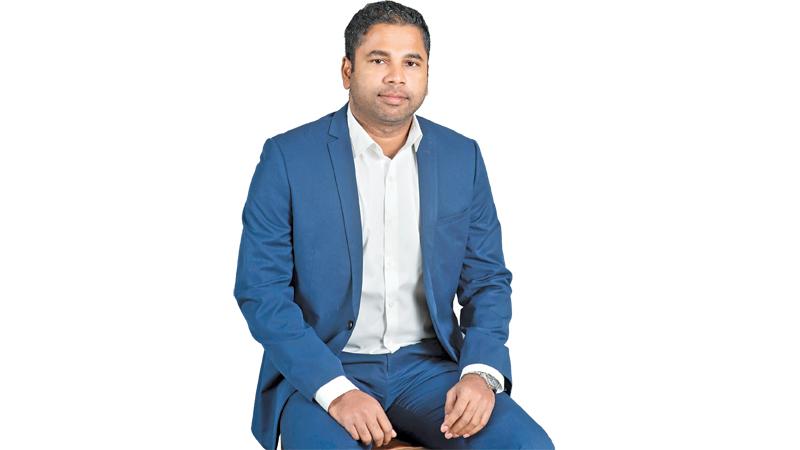
The brain drain in the ICT sector has been well managed by the Sri Lanakan companies and with global economic issues this trend is expected to reverse, Co–Founder/CEO of Melbourne-based software company, Elegant Media, Anushka Bandara told Sunday Observer Business.
“A year ago with the collapse of the island’s economy many decided to seek greener pastures overseas. However, despite losing a handful of experienced seniors, we still have a positive future outlook, as we have managed to upskill existing team members at the same time as promoting ICT as an attractive industry for potential newcomers,” he said.
Another reality is that with global patterns of hyperinflation, those who have opted to migrate are also finding it increasingly difficult to manage their careers in a new country.
He said that Sri Lankan ICT service exports will top US$ 1.9 billion by 2024.
Since 2022 up to date, the appreciation of the US dollar against the Sri Lankan Rupee has made Sri Lanka attractive for ICT service exports.
This year Sri Lanka is on target to provide a healthy 8 to 9% contribution to total exports under the ICT/BPO sector.
Compared to the first quarter of 2022, when we had to navigate the fuel and energy crises, this year has been somewhat steady and productive and this will help ICT exports.
Bandara, a dynamic entrepreneur who founded Elegant Media in 2010 is always working on improving agile business processes to provide better outcomes for innovative projects. He is highly involved in sales, marketing and recruitment and has helped a number of interns to launch their career.
Following is a Q&A with Anushka Bandara.
Q: What are the future requirements of the local ICT service export industry and how well is it prepared to face them?
A: For us to continue to grow and expand, we must focus on developing a steady stream of multi-skilled ICT professionals who bring to the table a range of skills as demanded by modern technology practices.
The Government recently appointed a Presidential Task Force to promote Artificial Intelligence across the island. This is just the kind of thinking we need, to better feed our local talent pool with experienced and qualified professionals.
Since the ICT landscape is subject to constant change in terms of technology, opting to focus on broader themes such as Artificial Intelligence, Machine Learning and Computer Vision is a step in the right direction.
We also need to provide further incentives for ICT service exporters, for them to continue to be competitive and source overseas projects that help build the local economy.
Q: What impact would innovations such as ChatGPT and Artificial Intelligence have on the local ICT service export industry? Will it result in job losses or instead create new opportunities?
A: ChatGPT uses artificial intelligence to provide the most suitable response to questions triggered by users. To do this, it must first learn by analysing existing data so it can better serve future users.
The growth of artificial intelligence will only create opportunities as there will be a great demand for human focussed companies that will serve as intermediaries between consumers and technologies.
However, to capitalise on this, we need to prepare our talent pools with the correct skills that will be in demand in the future. We cannot afford to have a mismatch in the knowledge gathered and the skills required.
Q: What opportunities has the global economic slowdown presented to Sri Lanka and especially to the ICT service export industry?
A: The appreciation of the US $ has made Sri Lanka a popular destination for those seeking high quality IT professionals and this has created a special opportunity for Sri Lanka to take advantage of the global economic slowdown.
Now is the chance for us to showcase the technical and professional abilities and capacity of our local ICT professionals and get ahead in an era of increased competition.
Q: What are the challenges of doing business in Sri Lanka and the importance of resilience and readiness?
A: You always have to be ready to adapt to change. With the onset of the Covid-19 pandemic in early 2020, we had to quickly find a solution for our operations to continue uninterrupted. We set out to reorganise the way we work, empowering our team members to work from home, while continuing to deliver projects without any delays.
Our resilience was again tested in 2022, when we had to decisively deal with fuel and energy shortages as the economy collapsed. Our readiness to face up to such situations proved invaluable in making sure that we were again able to confidently provide our services to all stakeholders.
Q: What is still lacking from the Government for the industry to move forward?
A: Two of the biggest concerns are energy and fuel and those seem to be now very much under control due to prudent steps taken by the Government.
One of the biggest challenges is to connect our talent pools with the necessary skills and we need more support and direction from the Government to ensure we produce more software engineers equipped to face the needs of the new digital age.
Overall we need stability and security complemented by a commitment to follow established national policies that do not change direction with the shifting political tide.
Q: Privatisation is a hot topic these days. What has been your experience being based in Australia, as to the positives and negatives of the privatisation of state-run entities?
A: Privatisation is always a good thing if it benefits the consumer. By disrupting traditional monopolies, it is the end user who will benefit with added value, in terms of better prices or services that are driven by competition.
However, there must also be an aspect of regulation to monitor private entities so they do not abuse or take undue advantage and revert to market domination tactics.
Privatisation of state-run entities will be a good move as essential sectors will be able to competitively serve the public.
